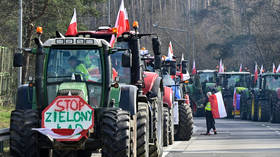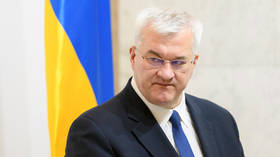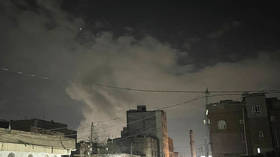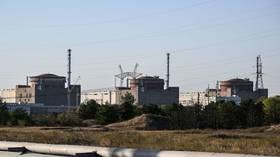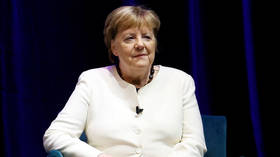Ukrainian imports costing EU farmers billions – official
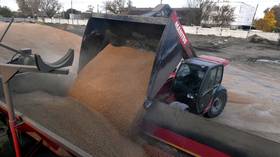
The EU’s agricultural sector lost €19 billion ($20.6 billion) in 2022 and 2023 as a result of a liberalization of trade with Ukraine, European Agriculture Commissioner Janusz Wojciechowski announced on Monday.
Members of the bloc lifted tariffs and quotas in 2022 for Ukrainian agricultural produce in order to enable foodstuffs, mainly grain, to be shipped onward to global markets. However, much of the supply has ended up getting stuck in Eastern European countries, which has endangered the livelihoods of local farmers.
Speaking at an EU agriculture ministers meeting in Brussels, Wojciechowski cited statistics showing the overall trade balance between Ukraine and the bloc having been positive over the past two years, bringing the EU economy €19 billion in revenues. Overall exports from the EU to Ukraine totaled €69 billion, while imports to the bloc amounted to €50 billion.
However, in the agricultural sector the glut of cheap Ukrainian produce has left EU farmers struggling against what they view as unfair competition. According to the minister, in 2022-2023, the bloc lost billions due to the influx of imports from Ukraine.
“Export is about €6 billion during two years, import [was worth] €25 billion, which means €19 billion minus,” Wojciechowski told reporters after the meeting, which took place amid angry protests by farmers across the EU.
He noted that Ukrainian exports were initially intended to be shipped onward to Asia, Africa, and the Middle East, and urged for steps to be taken to divert the flows to these markets.
Tensions among EU agriculture producers reignited last September when Brussels declined to extend the restrictions. Poland defied the decision and kept its ban on Ukrainian grain imports, but allowed transits of goods through the country. The protesting farmers say that shipments are still being diverted to local markets. Because Ukrainian producers don’t have to abide by EU rules, their products are cheaper, the protesters have argued.
The inflow destabilized markets in Eastern Europe, prompting several EU members, including Poland, to ban imports from the neighboring country.
For more stories on economy & finance visit RT's business section
